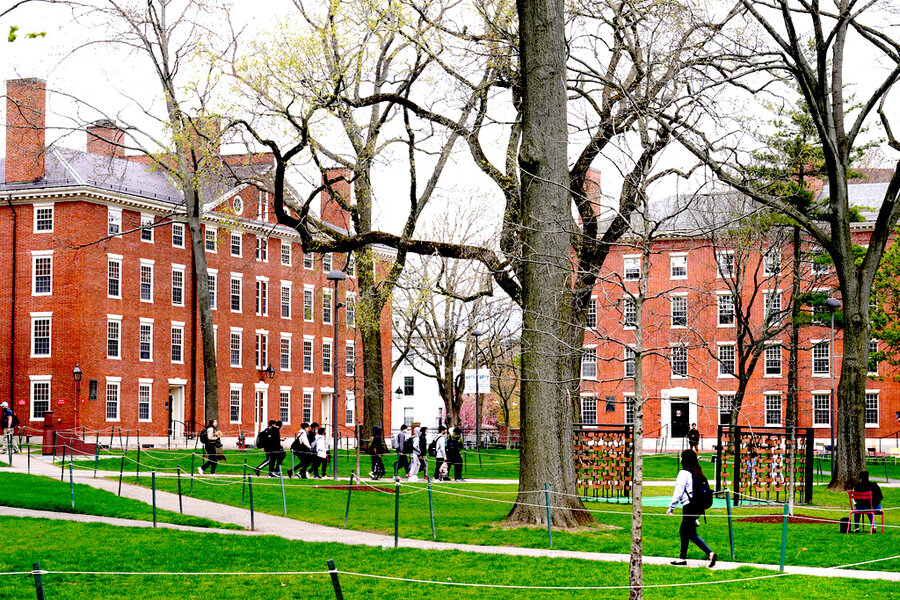College admissions become more probing
Loading...
Earlier this month, the Biden administration offered guidelines to colleges and universities on how they can assemble a diverse student population despite a June 29 ruling by the U.S. Supreme Court that racial preferences in admissions are unconstitutional. The official guidance allows schools to consider difficulties in an applicant’s life and education – including race.
The guidelines are one of many attempts in American education to navigate a new legal landscape. In the wake of the court’s decision, many colleges have said they will no longer weigh scores on standardized tests, which statistics show favor students from affluent families. Others have dropped legacy admissions or changed the type of required essay to prompt students toward addressing personal experiences such as race, parental education, or poverty.
These efforts are signs that many schools will focus more on each applicant’s character than on group identity. Ending racism, Chief Justice John Roberts wrote in the court decision, requires citizens to “see each other for what we truly are: individuals with unique thoughts, perspectives, and goals, but with equal dignity and equal rights under the law.”
Schools that focus on how applicants overcame adversity, for example, are really probing those prospective students’ qualities of thought, such as honesty, compassion, and discernment. An initiative launched after the court ruling by the National Association for College Admission Counseling seeks to advance the role that character plays in the admission process and to find a reliable, objective way to measure such qualities. The association recently joined hands with the Character Collaborative, an organization that promotes character in admissions.
“We’re only capturing what’s on the surface when it comes to students’ strengths and potential,” David Hawkins, NACAC’s chief education and policy officer, told The Chronicle of Higher Education. “The question is: How do we capture these intangibles that fall outside the things we try to quantify on paper?”
A new survey of high school and college admissions officials by the association found that more than two-thirds set considerable or moderate importance to an applicant’s positive character attributes. “What we’re trying to do through the character collaborative is have institutions talk about what are the character traits, what’s important to build our community,” Tom Bear, vice president for enrollment management at Rose-Hulman Institute of Technology, told the Tribune-Star in Terre Haute, Indiana. “Let’s communicate that to prospective students, so they can do a better job of identifying those themselves and saying, what’s the right fit.”
The era of strictly race-based preferences in college admissions is over. But a new era in education may have begun, one that requires a deeper understanding of what students and schools can better offer each other.





